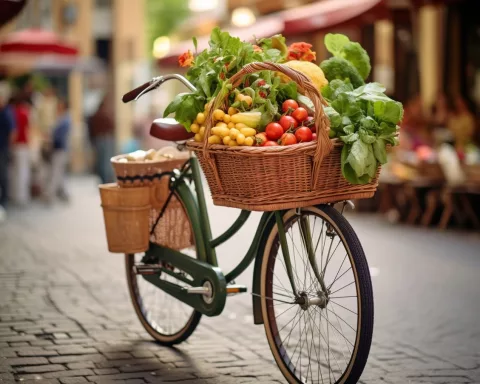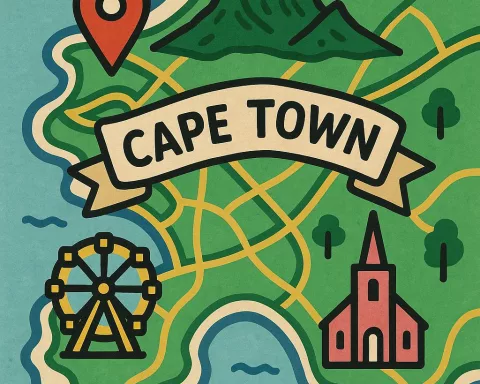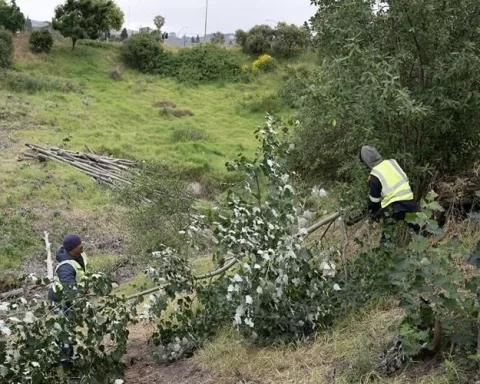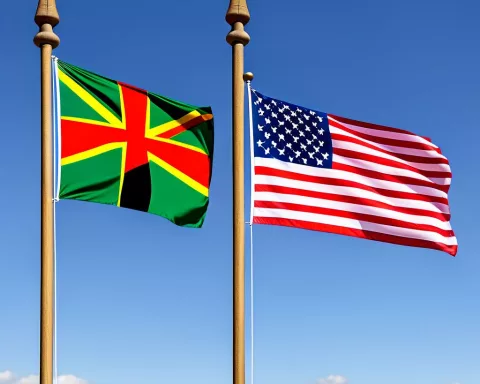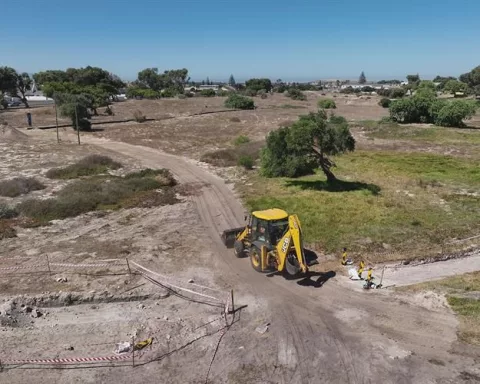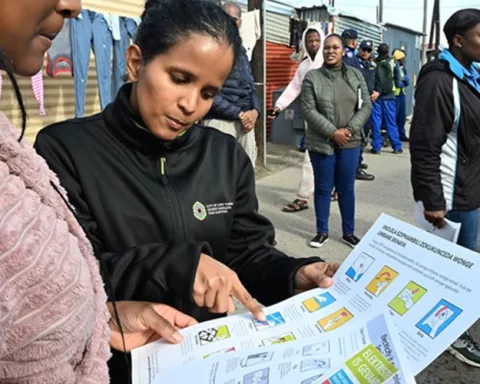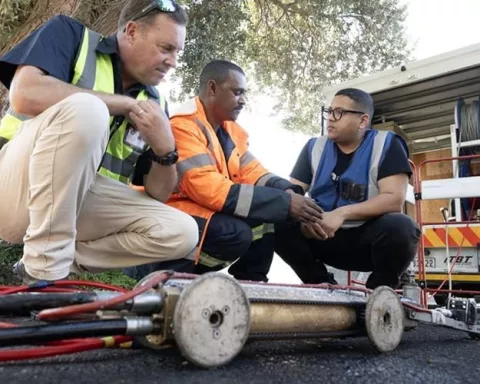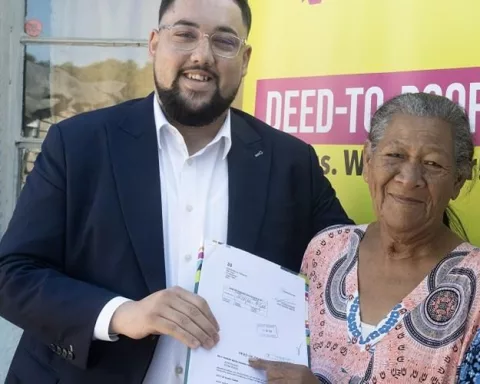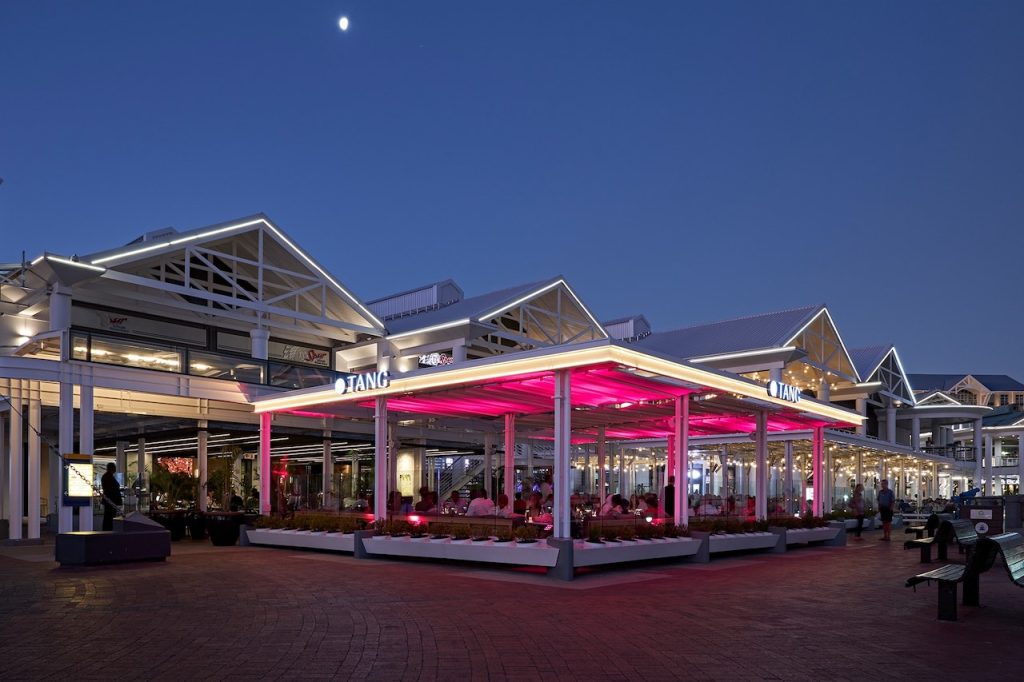Cape Town News
The Elsieskraal River restoration project in South Africa is on a mission to clean up the river and bring back its natural beauty. By removing unwanted poplar trees, this initiative aims to improve water quality and help local plants and animals thrive. The project, led by the City’s Water and Sanitation Directorate, is also creating jobs for the community, making it a winwin for both nature and people. With the goal of finishing by January 2025, this effort shows how we can work together to heal our environment and enjoy it more fully.
When rain falls in the city, roads become slippery and visibility drops, making every trip riskier. This past rainy weekend saw a scary jump in crashes and pedestrian accidents, turning busy streets into scenes of chaos and sirens. Drivers, cyclists, and walkers all face extra dangers, and while police are working hard to keep order, the real key to safety lies in everyone paying close attention and caring for each other. The wet city streets reflect a simple truth: staying safe in the rain means sharing responsibility and making wise, careful choices together.
South Africa’s Special Envoy to the US, Mcebisi Jonas, was left out of the 2024 Washington delegation by choice, not due to visa problems. His past critical remarks about former President Trump caused some tension, but the government said the decision was about strategy and logistics. President Ramaphosa’s team brought a strong group focused on trade, security, and building good ties, even inviting golf stars to help ease talks. The visit showed that diplomacy is about more than politics it’s about people, history, and looking forward together.
Cape Town is investing R300 million to make community spaces better for everyone. Parks, beaches, libraries, sports fields, and clinics will be upgraded to bring joy, health, and learning to all neighborhoods. Cemeteries are also being expanded with care to honor families and history. Special Safe Spaces will help homeless people find shelter and support. This big plan shows Cape Town’s heart, building pride and hope for a brighter future.
In the lively township of Ivory Park, a dramatic police operation on November 26, 2024, showcased the tightrope between fear and resilience. The South African Police Service (SAPS) worked together with other agencies to stop a kidnapping, proving their bravery and teamwork. Amidst the dangers of urban crime, they arrested nine suspects and seized weapons, highlighting the ongoing battle against lawlessness. This event not only reflected the struggles of the community but also its spirit of hope and determination, reminding everyone that together, they can face even the toughest challenges.
Constable Clinton Billings is a young and determined officer in the South African Police Service who blends strong discipline with a deep sense of duty. Growing up inspired by family and community, he carries the weight of history while pushing forward with resilience and learning. From athletics to public order policing and supply chain work, Billings shows how hard work and quiet leadership keep the system running. His story shines as a hopeful example of serving others with heart and strength in a changing South Africa.
In Cape Town, prepaid electricity lets you buy power upfront, helping you control how much you use and spend. The city has different tariffs like Home User, Domestic, and Lifeline, each with fixed monthly fees plus charges based on usage. Buying smaller amounts often saves money because prices rise as you use more. Simple habits like checking your meter, using appliances wisely, and understanding your tariff can help you save big and keep your home powered without surprise bills.
Online scams in South Africa are growing smarter, using social media like Facebook to trick people with fake profiles, fake jobs, and fake romances. Scammers spend weeks building trust, then lure victims into dangerous situations, as seen in the chilling “Jeff Rals” case where a woman was kidnapped after trusting a fake employer. Police and communities are fighting back with quick action, education, and teamwork, reminding everyone to stay alert and careful online. In this new digital world, staying safe means trusting wisely and looking out for one another.
Warrant Officer Avela Nokwe is a caring social worker in the South African Police Service who helps officers and their families heal from trauma and stress. Growing up in a small Eastern Cape village, he felt called to support others, choosing a path of learning and compassion. At SAPS, Nokwe creates programs that build mental strength and kindness within a tough police culture. His work shows that true bravery includes the courage to listen, care, and help others grow strong inside. Nokwe’s journey shines as a hopeful example of healing and heart in service to the community.
Cape Town is breathing new life into its old sewer pipes by replacing over 117 kilometers of wornout pipes with smart, modern methods that keep streets safe and clean. This big project, backed by lots of money and hard work, helps stop floods and keeps the city fresh and healthy. People from all neighborhoods, from busy downtown to quiet suburbs, are part of this team effort. By mixing hightech tools with education about caring for the pipes, Cape Town is building a stronger, cleaner city for everyone to enjoy.
Hagar Kruger’s heartbreaking story reveals deep problems in South Africa’s public healthcare. When she went to Delft Day Hospital in pain during pregnancy, she was ignored and denied help, leading to the tragic loss of her newborn daughter, Nicole. The clinic’s neglect and slow emergency response show how overworked and underresourced hospitals fail many mothers. Nicole’s empty nursery now stands as a quiet memory of a life cut short and a system that still needs to heal. Hagar’s grief is a powerful call for care, respect, and real change in healthcare.
As summer approaches, the city is gearing up to fight wildfires with fresh ideas and teamwork. They are sending out quickresponse ‘strike teams’ in 4×4 vehicles and using helicopters and drones to help spot fires from above. Community awareness is key, with officials urging residents to be careful and report any signs of trouble, especially in dry areas. With over 200 firefighting vehicles ready and partnerships with national parks and neighboring towns, the city aims to protect both people and nature from the growing threat of summer fires. Together, they are building a strong defense against the flames!
KwaZuluNatal is taking big steps to keep its people safe by introducing 36 new police vehicles just in time for the festive season. These shiny new cars will help police respond faster and reach more neighborhoods, making everyone feel more secure during holiday celebrations. At a special ceremony, leaders emphasized the importance of using these vehicles only for police work, ensuring trust in the community. This exciting initiative not only aims to fight crime but also encourages teamwork between police and local citizens, creating a safer environment for all to enjoy.
As summer arrives in Cape Town, the city’s stunning beaches buzz with excitement from locals and visitors alike. But to keep these coastal gems beautiful, everyone must play their part. Simple actions, like throwing away trash properly and joining cleanup events, can make a huge difference. The city is also using smart technology to monitor and maintain its sewer systems, ensuring the beaches stay clean and inviting. Together, with small efforts and big hearts, Cape Town can shine brightly this festive season!
Cape Town is launching an exciting program called Title DeedtoDoor, aiming to give nearly 10,000 families a piece of land they can truly call their own. This initiative tackles the unfairness of the past, helping people feel secure and allowing them to build a brighter future. Stories from local residents, like Deon Carelse and Mark de Jongh, show how receiving a title deed means more than just ownership; it brings hope and stability to their lives. With strong community support and leaders committed to change, Cape Town is on a path to create a fairer, more equal city for everyone.
Constable Mlungisi Ernest Makhanya is a brave and caring police officer in eMalahleni who protects children and survivors of abuse. He works in a special unit that fights family violence and sexual crimes, always balancing tough investigations with kindness. Makhanya doesn’t just catch criminals he helps heal survivors and teaches communities how to stay safe. His dedication shines like a bright light in a city often clouded by hardship, showing that hope and justice can grow even in the darkest times.

